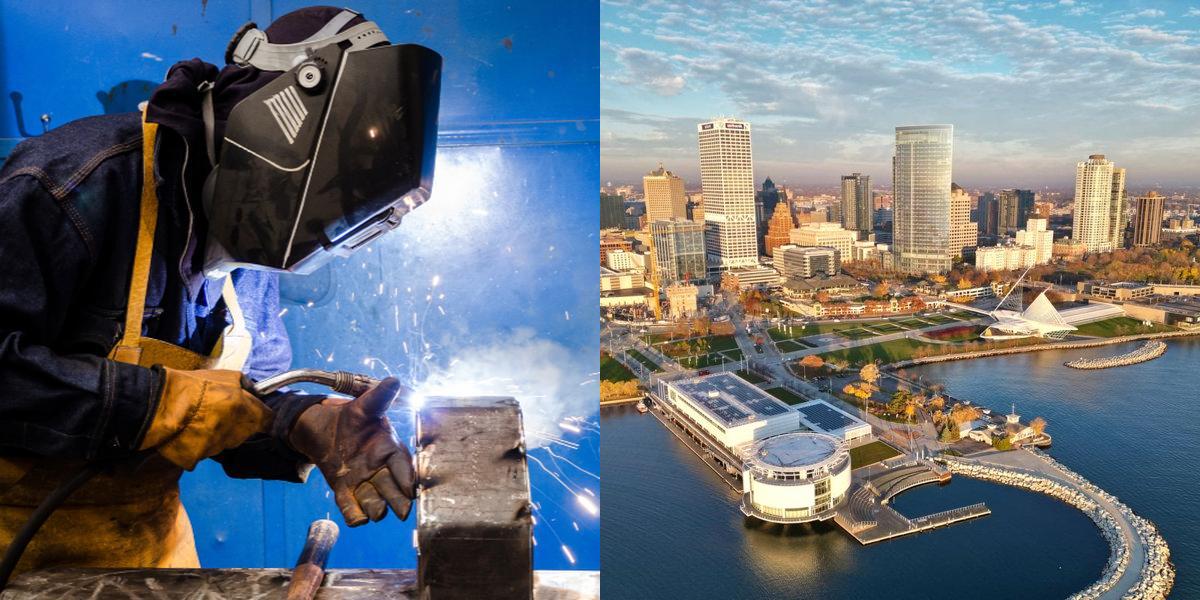How to Become a Welder in Wisconsin

If you enjoy working with your hands, building durable structures, and seeing your work come to life, a career as a Welder in Wisconsin could be the perfect fit. Welders are in steady demand across construction, manufacturing, and infrastructure projects statewide.
According to the U.S. Bureau of Labor Statistics (BLS), Welders, Cutters, Solderers, and Brazers in Wisconsin earn an average of $55,660 per year ($26.76 per hour). With multiple training options, professional certifications, and a wide range of career paths, welding offers excellent job stability and growth potential.
Where Can I Find Welder Classes in Wisconsin?
Dreambound makes it simple to compare and find the best welding classes in Wisconsin. The platform lists accredited training programs across major cities such as Milwaukee, Madison, and Green Bay, including details like:
- Program cost and duration
- Curriculum focus (e.g., pipe, structural, or TIG welding)
- Flexible scheduling for part-time or full-time students
Dreambound helps you connect directly with schools to begin your enrollment process.
How Long Does It Take to Become a Welder?
Most Wisconsin welding programs take 6 months to 2 years to complete. The exact duration depends on whether you pursue a short-term certificate, an associate degree, or an apprenticeship that combines on-the-job training with classroom study.
How Do I Get My Welder Certification?
To become certified:
- Complete Training: Graduate from an accredited welding program.
- Build Experience: Gain hands-on practice through labs or apprenticeships.
- Pass AWS Exams: Take the AWS Certified Welder test, which includes written and practical sections.
- Maintain Certification: Renew every 6 months – 2 years through additional testing or work verification.
How Do I Get a Job as a Welder?
Follow these steps to begin your career:
- Create a Strong Resume: Emphasize certifications, training, and welding methods mastered.
- Apply to Local Employers: Target manufacturers, construction firms, and fabrication shops.
- Network and Attend Job Fairs: Many unions and trade associations host welding events in Wisconsin.
- Start as an Apprentice: Gain mentorship under experienced welders.
- Continue Learning: Take refresher or advanced welding courses to expand your skill set.
You can also explore job openings on MyNextMove, which lists active welding positions across Wisconsin.
Career Paths and Opportunities After Becoming a Welder
A certified welder can specialize or move into advanced roles such as:
- Pipe Welder or Structural Welder
- Fabrication Specialist or Industrial Welder
- Welding Inspector or Quality Control Supervisor
- Robotic or Underwater Welder
- Welding Instructor or Trainer
Experienced welders may earn over $70,000+ annually, particularly in specialized or high-demand sectors like pipeline and aerospace welding.
Frequently Asked Questions
How long does it take to become a welder in Wisconsin?
Typically 6 months – 2 years, depending on your program and training level.
What qualifications do you need to be a welder?
A high school diploma, completion of a welding training program, and AWS certification.
Can you make $100,000 as a welder?
Yes — welders in specialized fields such as underwater, pipeline, or industrial construction welding can earn over $100,000 with experience.
Do you need a welding license in Wisconsin?
Wisconsin does not require a state-issued welding license, but most employers require AWS certification to verify skills.
Final Thoughts
Becoming a Welder in Wisconsin opens the door to a stable and rewarding skilled-trade career. With growing demand across industries, competitive pay, and opportunities for advancement, it’s an excellent choice for those who value craftsmanship and problem-solving.
Ready to start your journey?
Compare accredited welding programs on Dreambound and take your first step toward a high-earning, hands-on career today.
Dreambound offers a window into various career paths, so if you're considering a shift in your career, browse through these articles:

Fel is a student support representative who guides enrollees to the right program and answers their queries. She's committed to helping students and takes pride in her work. In her free time, she enjoys sightseeing and hanging out with loved ones.



